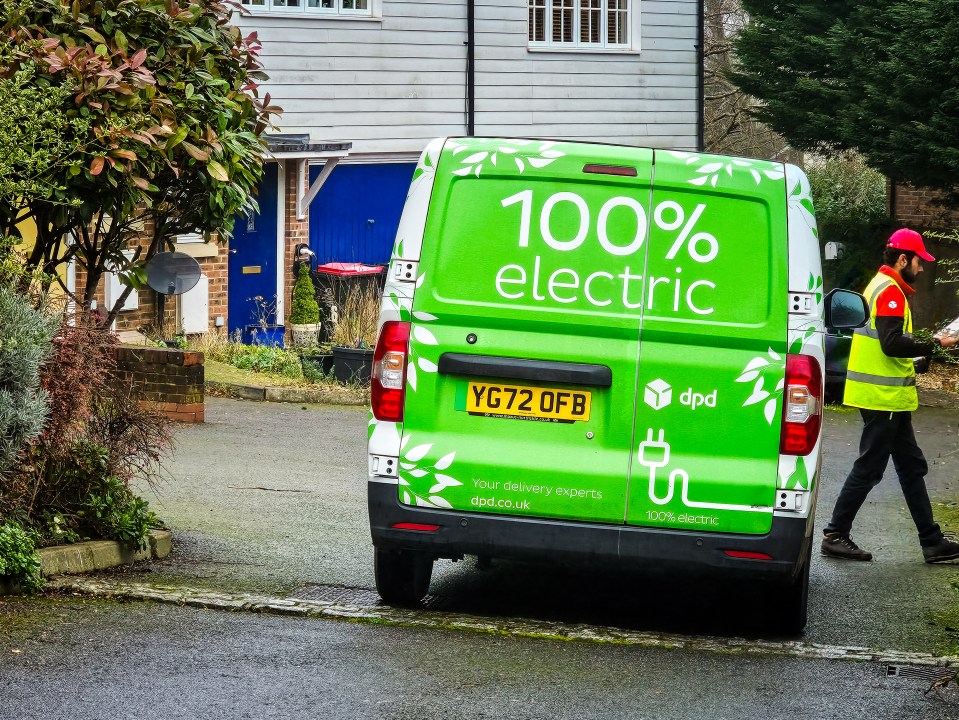DRIVERS can avoid a hefty tax hike that’s coming in a matter of months thanks to three handy tips.
Vehicle Excise Duty, or VED, is rising in April and will heavily impact motorists who own petrol and diesel vehicles.
Indeed, first-year rates have doubled for buyers of many new models, a measure that will further widen the gap between fully electric and internal-combustion engines.
Van owners are set to be among the most affected by the new VED rates based on emissions.
Experts at Go Compare have found that diesel van owners could pay £1,807.75 more per year under the new update, while those with petrol vehicles may have to fork out an extra £1,354.84.
This represents a significant hurdle for road users who are already feeling the squeeze in recent times and rely on their vans for work.
Tom Banks of Go Compare, however, suggested there are some methods road users can employ to lessen the financial strain by April.
Firstly, perhaps the most straightforward way is simply by switching to a cleaner model to save money – although cutting back on costs elsewhere is another way around the price hikes.
Tom said: “If you can’t buy a suitable hybrid or electric van, you could opt for a ‘nearly new’ one instead.
“This allows you to enjoy a vehicle that’s virtually as good as new without breaking the bank and means you can dodge the increased tax.
“Failing this, see if there are any other ways you can reduce your motoring expenses to counteract the higher tax.
“Comparing van insurance policies might help you find a provider offering the same amount of protection for less, and finding new ways to maximise your fuel economy could help to cut costs further.”
Go Compare says van drivers will pay an extra £15.5 million over the first six months of the new tax year if 2024 sales patterns continue.
The analysis from Go Compare van insurance examined data from the Department for Transport.
They also looked at privately owned van registrations in the first half of the 2024 tax year and then applied new VED rates to determine how much road users could pay from April.
This comes as drivers have been left furious after reporting that “contaminated” fuel from a major petrol station chain “caused cars to break down”.
Dozens of motorists using a BP garage in Rayleigh, Essex, saw their vehicles grind to a halt shortly after filling up.
Bosses at BP have since confirmed that the contaminated pump, at the garage in London Road, has been closed.
And elsewhere, Fiat has slashed the price of two models by thousands after a drop in sales last year.
The 600e Crossover and its Abarth 500e Hot Hatch stablemate are now going for a bargain price.
The Sun’s 14-year campaign to freeze fuel duty
The Sun has backed drivers as part of the Keep It Down campaign with rates of fuel duty not rising since the start of 2011.
Former Chancellor of the Exchequer Jeremy Hunt earlier this year thanked Sun readers for helping him to make the case to freeze fuel duty in his last Budget.
The freeze meant drivers would not have to face a potential £100 rise in motoring costs as a result of a 12p per litre duty hike.
Our decade-long campaign fights on behalf of readers to freeze duty on petrol and diesel to help deal with rising living costs.
Mr Hunt said: “I know how much Sun readers are feeling the pinch right now.
“Whether you drive a van, a hatchback or a people carrier I know how much you need to be on the road.
“Keeping it down means hard-working people will have an extra £100 this year without having to cut down using their vehicle.”










